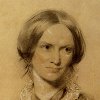“ Happy are those nations where one can be good without effort, and just without conscious virtue. If in this world there is any condition so miserable that one cannot live without wrong-doing, where the citizen is driven into evil, you should hang, not the criminal, but those who drove him into crime. ”
Jean-Jacques Rousseau, Emile, or On Education (1762). copy citation
| Author | Jean-Jacques Rousseau |
|---|---|
| Source | Emile, or On Education |
| Topic | evil virtue |
| Date | 1762 |
| Language | English |
| Reference | |
| Note | Translated by Barbara Foxley |
| Weblink | http://www.gutenberg.org/cache/epub/5427/pg5427-images.html |
Context
“Since our dislike of death is the strongest of those aversions nature has implanted in us, it follows that everything is permissible to the man who has no other means of living. The principles, which teach the good man to count his life a little thing and to sacrifice it at duty's call, are far removed from this primitive simplicity. Happy are those nations where one can be good without effort, and just without conscious virtue. If in this world there is any condition so miserable that one cannot live without wrong-doing, where the citizen is driven into evil, you should hang, not the criminal, but those who drove him into crime.
As soon as Emile knows what life is, my first care will be to teach him to preserve his life. Hitherto I have made no distinction of condition, rank, station, or fortune; nor shall I distinguish between them in the future, since man is the same in every station;”
source


